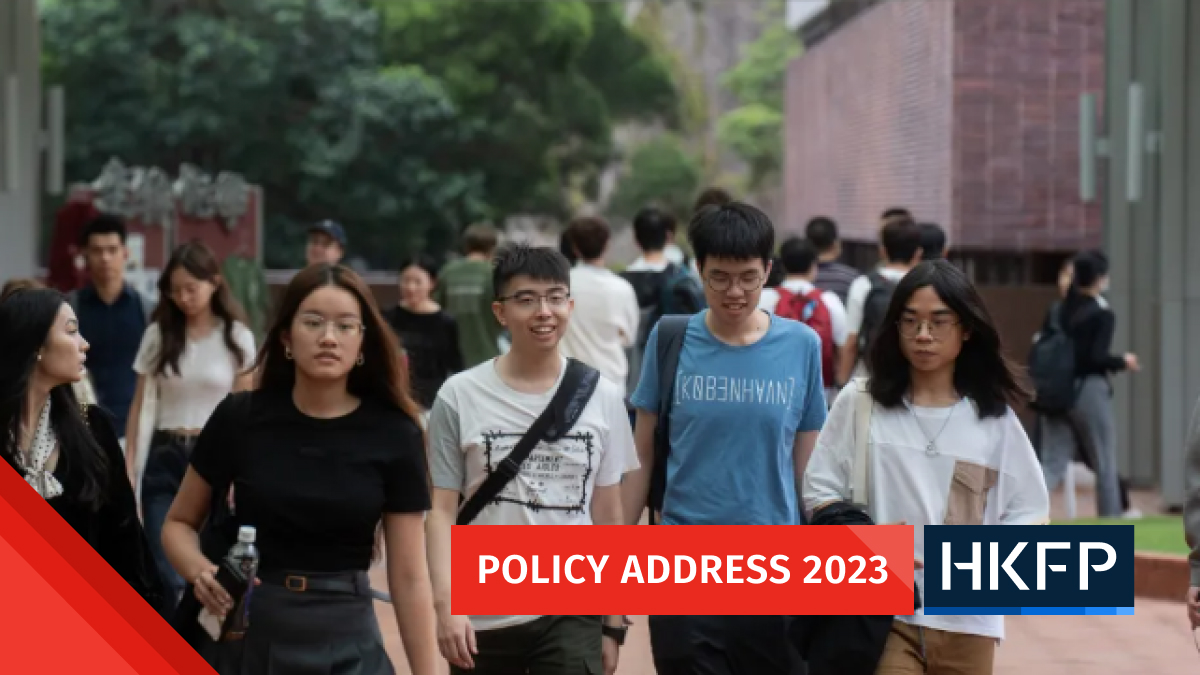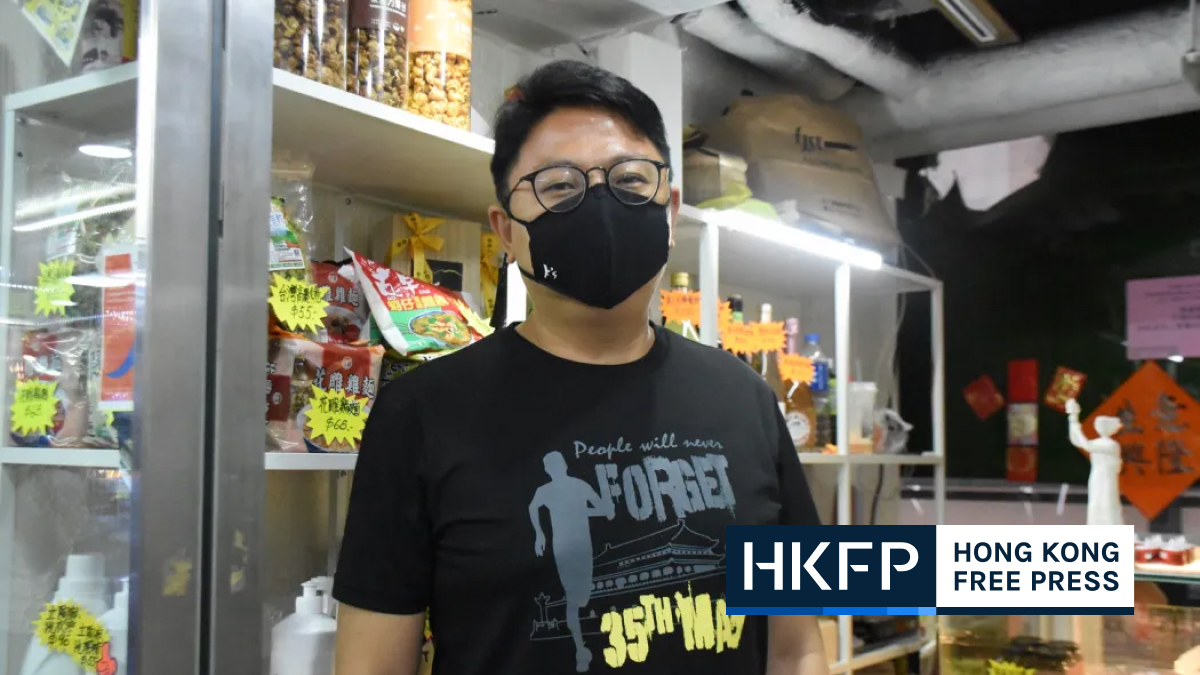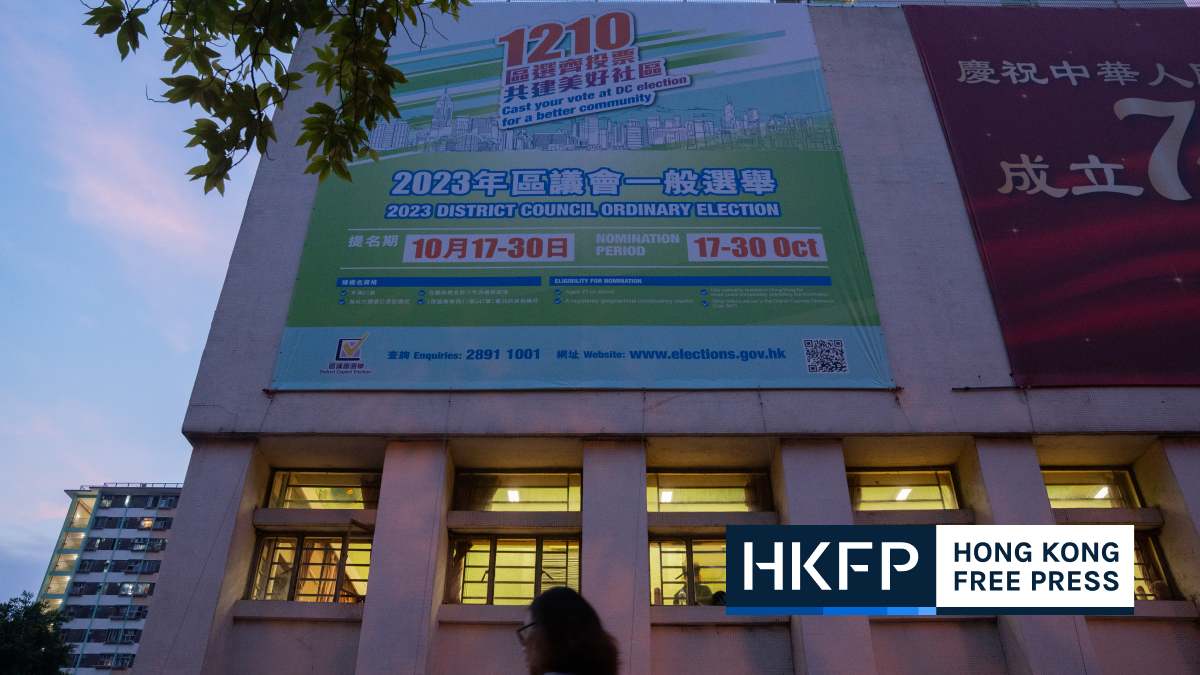After leaving Hong Kong’s top court on a warm June morning, Bao Choy was overwhelmed by a mixture of jubilation and sadness.
Embroiled in a legal battle since 2020, the veteran journalist had just won an unexpected victory when the Court of Final Appeal quashed her conviction for making false statements linked to accessing vehicle records for a documentary about the 2019 Yuen Long mob attack.
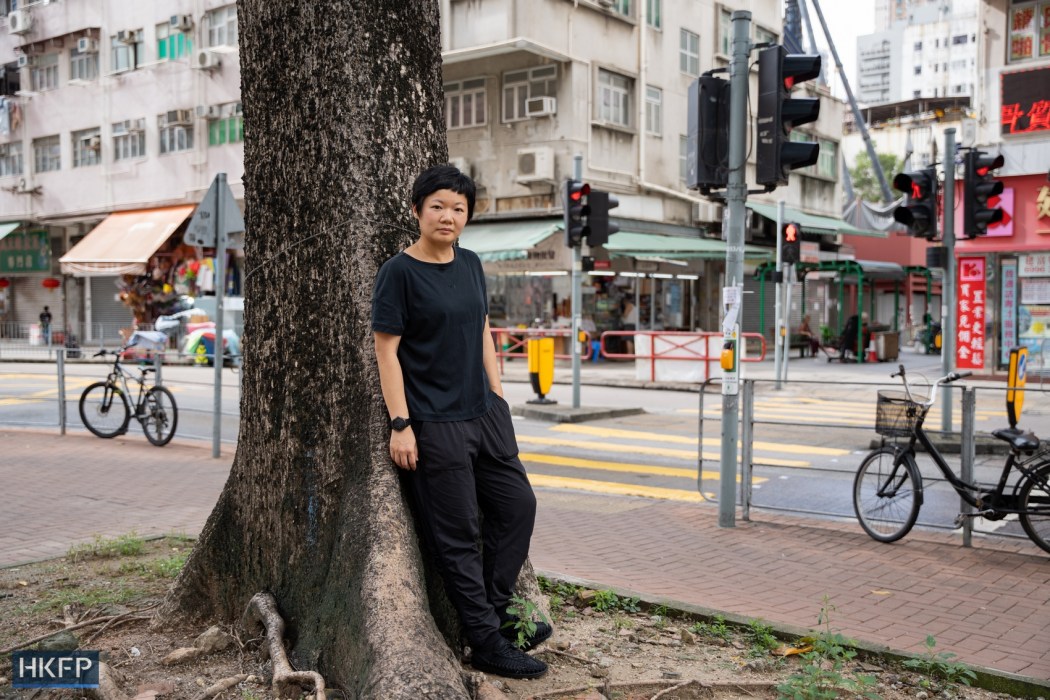
The judgement was hailed as a rare victory for press freedom, seen as increasingly under pressure in the city. However, it doesn’t mean things will simply return to normal.
“I won in the sense of social justice. Yet we’re very clear that even with the top court’s ruling, the government can do anything to change the game. It is not a long-lasting victory,” she told HKFP.
Choy Yuk-ling, now 39, is better known as “Bao,” a nickname once given to her to describe her round face. But following her ordeal over the past three years, she has lost weight and her features have become more angular.
After her arrest in late 2020 she joined the Nieman Fellowship at Harvard University, then returned to her home city and established a new media outlet called The Collective – handling all the procedures associated with her court case along the way.
The Yuen Long mob attack on protesters and other passengers was seen as one of the key moments of the months-long unrest that shook Hong Kong in 2019, sparked by protests against a controversial amendment to the city’s extradition bill.
On July 21, 2019, over 100 rod-wielding men in white stormed Yuen Long MTR station, leaving 45 people injured – including journalists, protesters, commuters and pro-democracy lawmaker Lam Cheuk-ting. Police were criticised for their slow response to the incident, with some officers seen leaving the scene or interacting with the white-clad men.
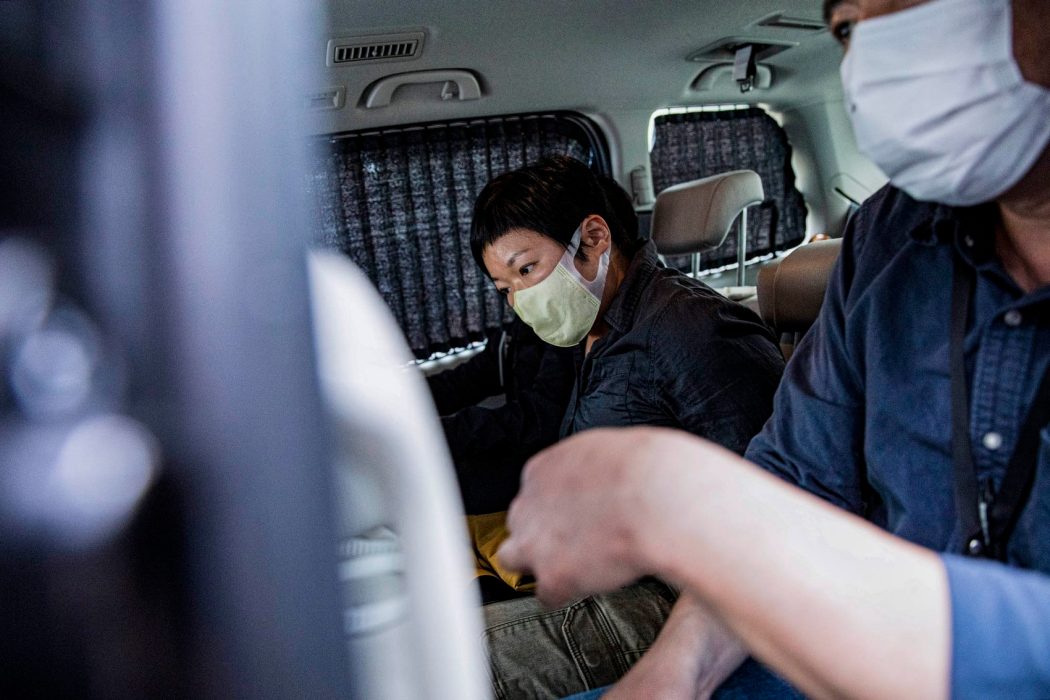
Bao was making a documentary about the events that night for Hong Kong Connection, a programme on government-funded broadcaster RTHK. To trace the owners of vehicles pictured at the scene of the attack, and to establish who might have been involved, Bao and her team accessed vehicle records from a government website. It was this that led to her arrest.
Even after her court victory, she is unwilling to celebrate a win. “The damage has already been done,” she said.
“The police said they followed the law [to arrest me]. But the outcome was one stone, several birds – it hit Hong Kong Connection and it hit RTHK. There was also discussion about whether the government had hoped to suppress journalists reporting 721, to which I had no answer,” Bao, referring to the attack by the date it occurred, as is common in Hong Kong.
Dubbed “Master Bao” by supporters and hailed as an unwavering icon of Hong Kong journalists, Bao said she did not see herself as making waves. Instead, like many Hongkongers, she feels she is simply struggling against the tide of change sweeping through the city.
‘A luxury’
Five months after her arrest, Bao was convicted of “knowingly making a false statement” to access vehicle owner information for the documentary. She was fined HK$6,000 at the West Kowloon Magistrates’ Courts.
She shed tears when she walked out of the courtroom, as crowds chanted: “Journalism is not a crime!”
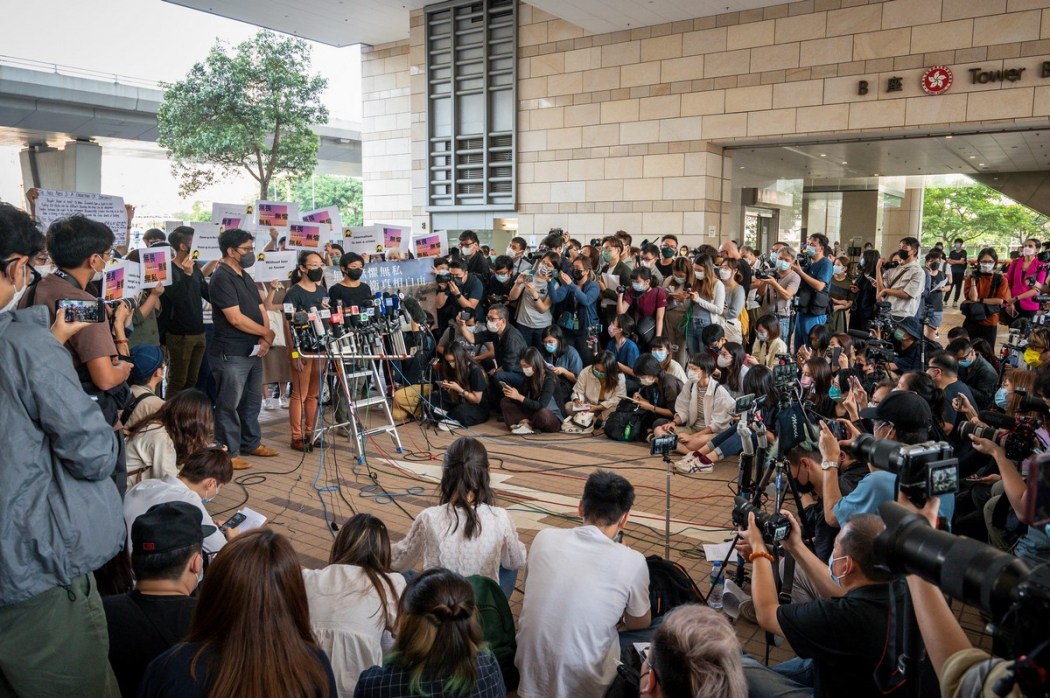
The arrest and conviction of a journalist shook Hong Kong, at a time when such events were still rare. Nearly 100 journalists waited for her response outside court.
In the week following her conviction, she agonised about whether to appeal. “If I filed an appeal, I should be ready to go to the top court. That usually means a commitment of around three years, and I would have to pay a sum of seven digits for legal fees if I lose in the top court, as I would have to pay legal fees for the other side, ” Bao said.
While her worried family advised her to be “rational” and just let the matter go since she had not been sentenced to jail, Bao felt her conviction was not just a personal matter but an attack on the entire media industry.
“If I didn’t (file an appeal), I would probably regret it. And that’s something irreparable.”
Bao choy
In Hong Kong, you must declare your reasons for wanting to obtain vehicle data on the government-run website. From a scroll-down menu, Bao clicked “other traffic and transport-related matters,” which the prosecutor argued did not include journalism.
“People in the industry would not have dared to access vehicle data with my conviction,” Bao said, adding it would have a chilling effect on everyone in the media. “If I didn’t (file an appeal), I would probably regret it. And that’s something irreparable, that cannot be undone.”
Driven by a sense of responsibility to her profession and a desire to defend press freedom, she said her “sensibility prevailed.”
When she lost her appeal in the High Court last November, her legal team immediately started to file a second appeal.
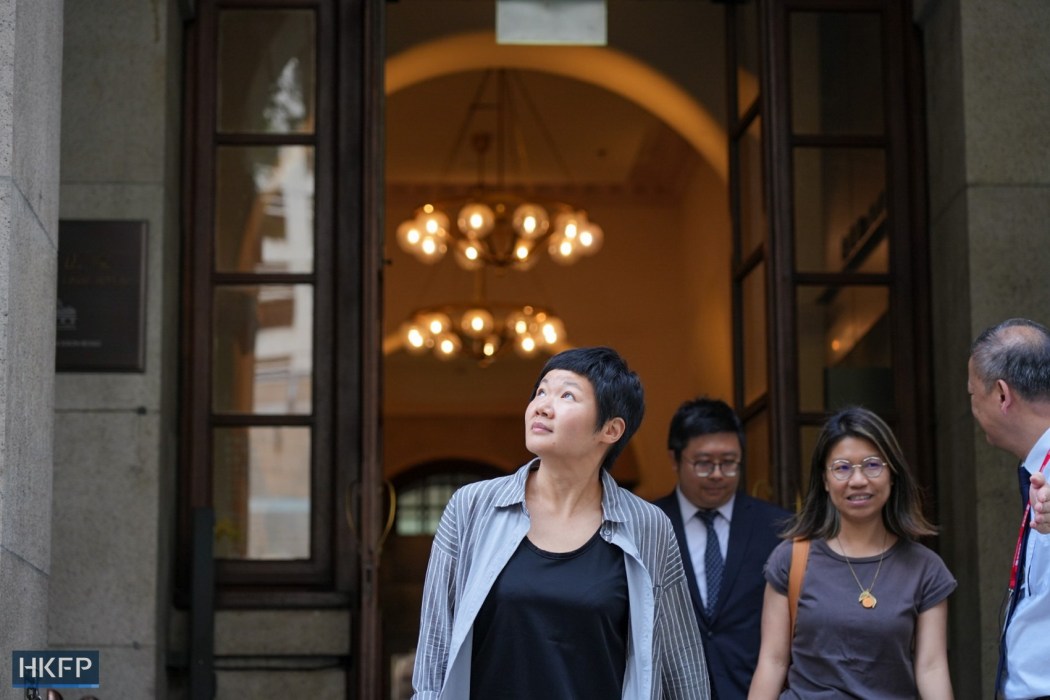
“I’d made up my mind to appeal to the end,” Bao said, comparing her situation to the thousands of Hongkongers – including some employed in the media – who were arrested and jailed over the past few years.
Since her conviction, Hong Kong has seen the closure of Apple Daily newspaper, Stand News and Citizen News. When Bao walked out of the High Court, the number of journalists awaiting her was reduced to around 10.
Unlike others, Bao did not have to face losing her personal freedom. “All along, what I dealt with was mainly about legal fees,” Bao said. “It is a luxury for me to resist!”
A broken egg
Veteran journalist Cheng Sze Sze had worked with Bao to produce investigative documentaries for RTHK’s Hong Kong Connection before Bao’s arrest.
“I still remember at the beginning I dared not talk with Bao, though I knew she was going through a period of crisis. There was tons of sadness and guilt… I kept asking myself: Why was she arrested, not me? Why was she forced to leave RTHK while I could stay for two more episodes?” Cheng recalled.
Following the arrest, RTHK immediately suspended Bao. Cheng, however, stayed for a while. From 2021, the government drastically transformed the public broadcasting service; replacing its head, transferring producers of Hong Kong Connection to other departments, deleting content, and making many senior staff quit.
“When the nest is toppled, how can the eggs remain intact? It’s a broken egg and no one can save it.”
Bao Choy
“It was heart-wrenching seeing the changes at RTHK, ” Bao said. Before she rejoined RTHK as a freelancer in 2019, she had worked at the broadcaster for over 10 years, a period when she enjoyed editorial freedom. It was like she was “sheltered under a large tree”, she told HKFP previously.
“But later I thought to myself: it’s just like many things happening in Hong Kong; When the nest is toppled, how can the eggs remain intact? It’s a broken egg and no one can save it.”
When she left Hong Kong in August 2021 for the one-year Nieman Fellowship at Harvard University, Bao did not expect to witness “more and more eggs broken in Hong Kong” while she was thousands of miles from home.
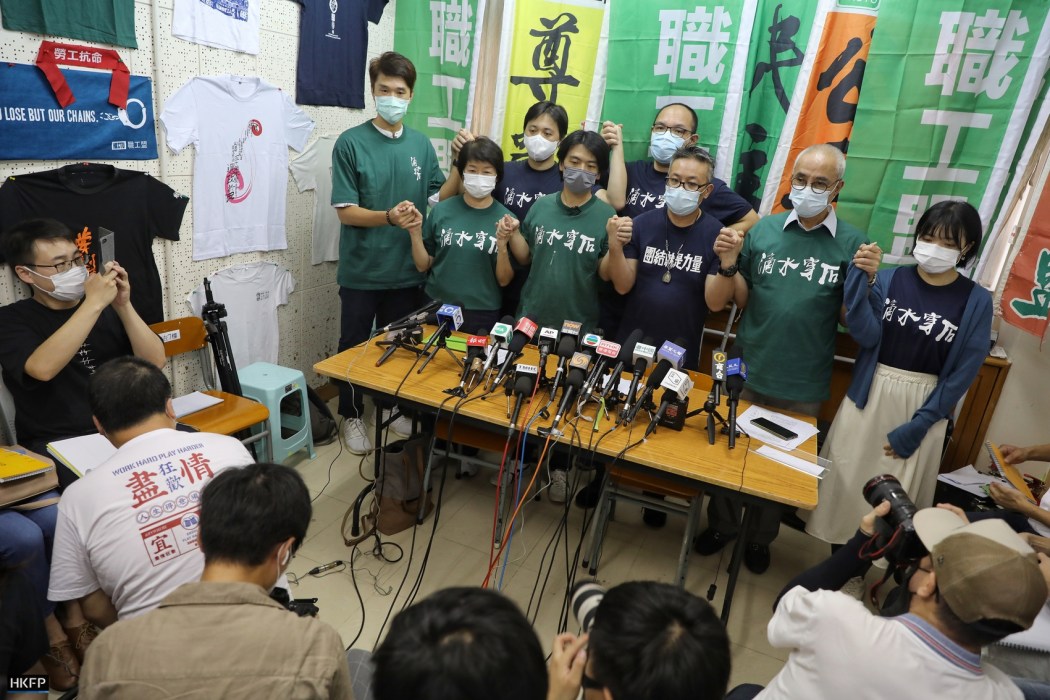
A year after the Beijing-imposed national security law came into effect in June 2020, the city saw a broad crackdown on civil society and media. Bao said she wept while reading news of Hong Kong, and began to self-censor when invited to give talks about the city.
“I just couldn’t help thinking: ‘if I talk about something, would it mean I couldn’t return to Hong Kong’?” She also felt guilty about being unable to experience all the radical changes in her home city.
‘Inner voice’
Campus life at Harvard was a different world. Bao took courses centred around social justice and reconciliation, dictatorship and populism, war and peace, leadership, and also documentaries.
In her favourite course Leadership from inside out: Self, Identity, and Freedom, students were encouraged to recognise their various identities, and how those identities influence their “inner voices.”
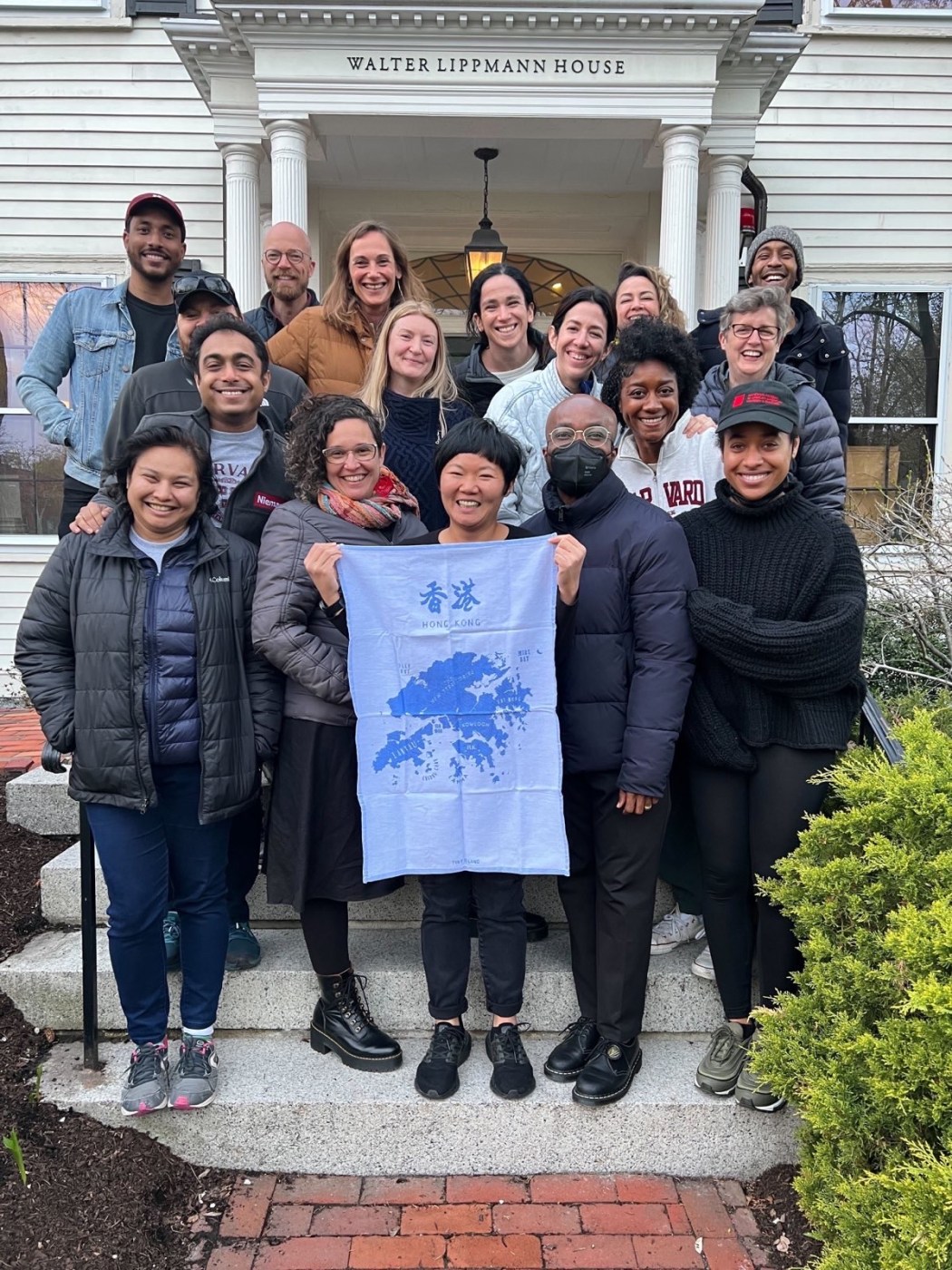
Bao grew up in a low-income household in Yuen Long. She didn’t have much by way of entertainment except for going to public libraries and watching television. It was an episode of Hong Kong Connection, featuring a social worker serving ethnic minorities in Hong Kong, that sparked her dream of becoming a journalist.
“You realised that there were powerless people in need of help. We might offer help by becoming a journalist – somehow I gained that feeling,” Bao told Initium Media in 2021.
She joined Hong Kong Connection in 2012, seven years after starting in the television industry following her graduation from university.
And after completing her fellowship in the US, she went back to a city in the midst of major changes.
Every small change
“When I returned to Hong Kong, I didn’t want to get a job in mainstream media any more, ” Bao said. She soon came up with the idea of establishing a small-scale media outlet to cover local news, focusing on feature stories.
“We have to admit that Hong Kong is gradually getting worse. And it will continue to deteriorate, ” Bao said. “But it is still important to meticulously document every small change of the city. ”
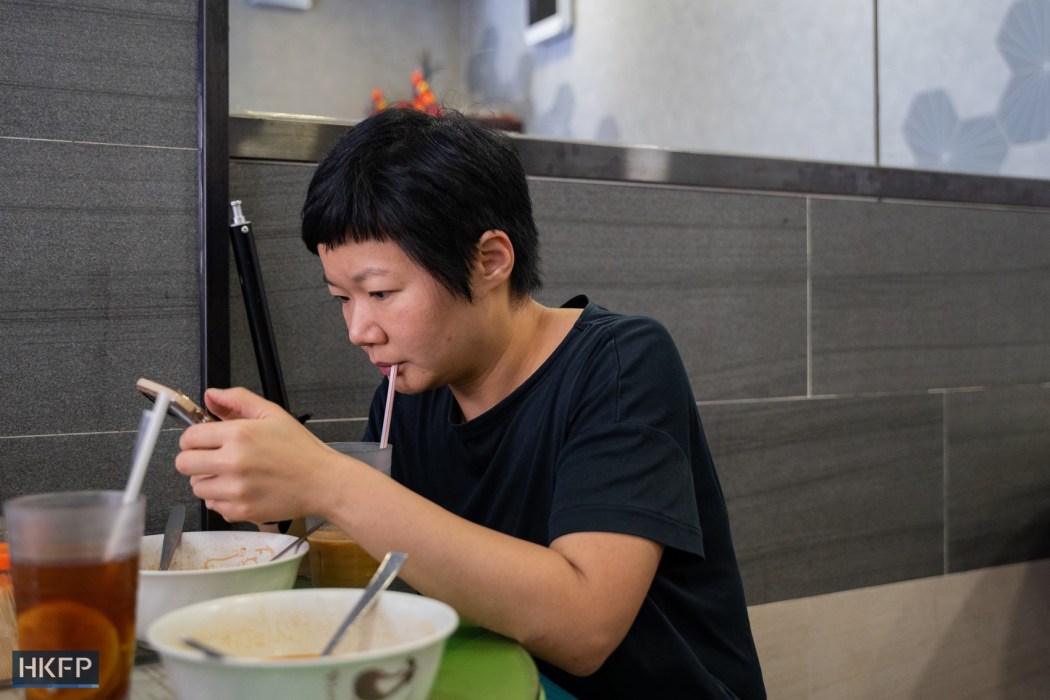
“For those who are still living here, every small change affects us, right?”
Setting up a new independent media outlet in Hong Kong is considered tough and risky. “Our friends kept telling her ‘you should be mentally prepared – we’re now living in a complete different Hong Kong’,” said Fanny Kwan, Bao’s friend and also a former producer at RTHK.
“Apart from the difficulties of dealing with red lines and money, it is also very hard to hire passionate and qualified journalists as many of them have emigrated or turned to other professions, ” Fanny told HKFP. “But Bao is very persistent. You can’t change her once she has made up her mind. “
With the efforts of Bao and co-founder Lui Tsz Lok, The Collective was officially launched in February.
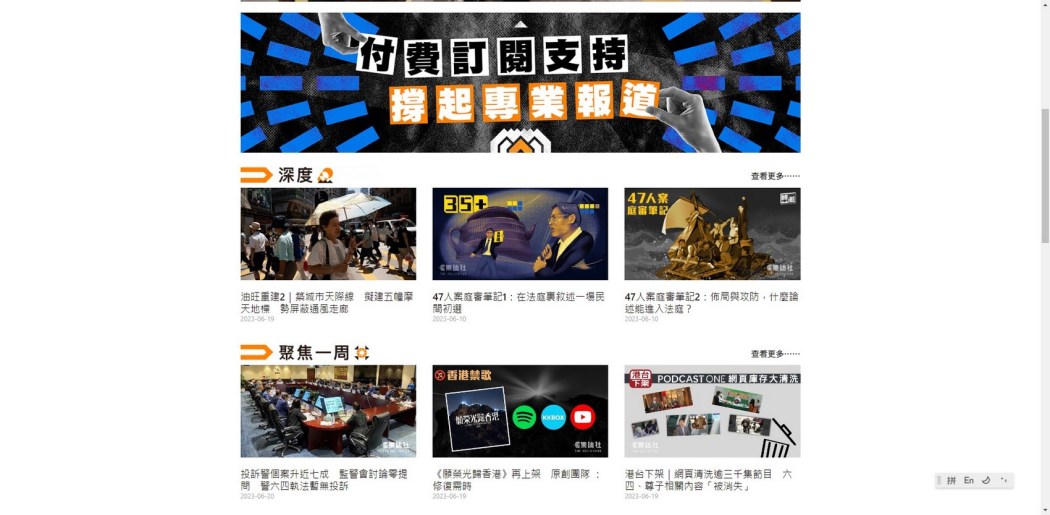
Over the past four months, it has covered how former district councillors and small groups persist, the current situation of university student unions, and the arrests on the 34th anniversary of the Tiananmen crackdown, as well as stories about injured workers and their rights.
“Currently we don’t have many limitations as to what can’t be covered – except for issues on which the court has ruled, such as the slogan ‘Liberate Hong Kong, revolution of our times’,” Bao said.
But, Bao said, the outlet was still struggling to attract subscribers and “take root.”
An ordinary woman
“The wave is vast, and there seems to be no end in sight. It’s so big that we can’t even see the edges and where we stand in the midst of it.”
Bao Choy
Recently, veteran journalist Cheng wrote a profile of Bao for Ming Pao: “Every time when she left the court, she would scroll her phone to check if her pictures [in the news] were pretty,” Cheng wrote. “Indeed, she is just an ordinary woman. If she can defend press freedom, persist until the end, and manage her fears, why can’t we?”
Bao said: “The changes in the political situation in Hong Kong are ongoing, and it is unclear when they will come to an end. The wave is vast, and there seems to be no end in sight. It’s so big that we can’t even see the edges and where we stand in the midst of it.”
But she knew she could do is to persist as a journalist, “to document every small change of the city.”
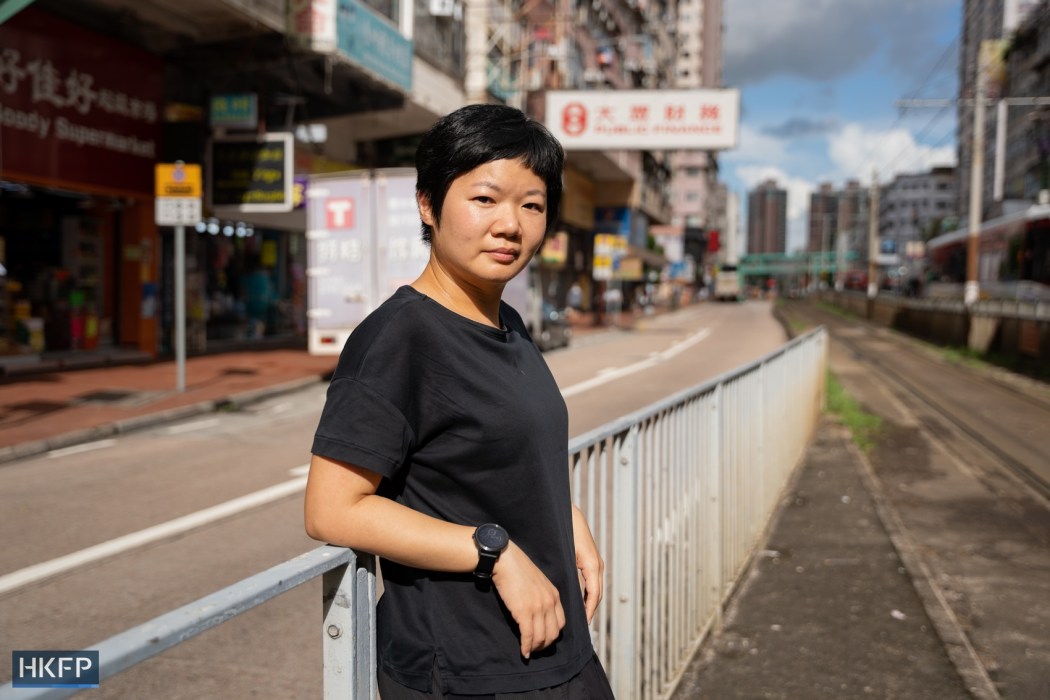
Bao herself said she was just struggling in the tide without having a clear picture of how big the waves are.
Bao is still waiting for the government to return her fine of HK$6,000. She has considered donating the sum to an NGO.
“But my friends said I should mount and frame the cheque. That’s a better idea I think, for the sake of this memory!”
Support HKFP | Policies & Ethics | Error/typo? | Contact Us | Newsletter | Transparency & Annual Report | Apps
Help safeguard press freedom & keep HKFP free for all readers by supporting our team

LATEST FROM HKFP
HKFP has an impartial stance, transparent funding, and balanced coverage guided by an Ethics Code and Corrections Policy.
Support press freedom & help us surpass 1,000 monthly Patrons: 100% independent, governed by an ethics code & not-for-profit.



